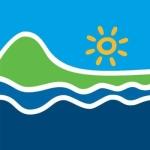RENA Maritime NZ Update (83)
Wednesday, 19 October 2011 7:00 p.m.
Clean-up operations are underway along the eastern coastline today as some oil and debris has come ashore as far south as the East Cape.
National On Scene Commander Ian Niblock says that iwi support has been "outstanding", with clean-up teams removing more weathered oil from the shoreline at Maketu and towards the East Cape today.
"We have been working collaboratively with shoreline clean-up assessment teams, the New Zealand Defence Force, iwi and community members, and the volunteer coordination group to action our clean-up plans.
"Like many factors in this response, we need to wait for the right conditions and have the right tools and knowledge in place before we can turn our plans into action on the ground.
"We have been focusing our clean-ups on the beaches before using various recovery methods on the rocky shoreline," Mr Niblock says.
A coastal navigation warning regarding containers remains in force and includes the East Cape.
"Debris from containers is also expected to strand in the East Cape area, so we want people to please let us know if they come across this material. It's important to note that effectively dealing with this material is a separate process from oil spill recovery from the shoreline, and needs to be handled by salvage experts who have the appropriate equipment and training to deal with it," Mr Niblock says.
"Some of the material that strands may also be oiled, so again, we ask people to please not touch it, as it is hazardous, but to please report it to Maritime New Zealand on 0800 645 774 (0800 OIL SPILL)."
Mr Niblock says there will be specialist teams in the region tomorrow to assess and recover material that has come ashore.
Volunteers will also continue to be called upon to assist with shoreline clean up during the next few weeks, especially ifRenareleases more oil.
As oil and debris comes ashore along the east coast towards East Cape, it is important members of the public report dead or oiled wildlife (birds, mammals and fish) to the Oiled Wildlife Response Team on 0800 333 771.
Meanwhile, a team of four salvors is on board the vessel Rena ensuring operations will be set to resume when the weather conditions improve. The decision was made earlier today not to restart pumping oil off the Rena due to the rough weather and swell conditions.
Meanwhile, a team of four salvors is on board the vesselRenaensuring operations will be set to resume when the weather conditions improve. The decision was made earlier today not to restart pumping oil off theRenadue to the rough weather and swell conditions today.
Svitzer Salvage team leader Captain Drew Shannon says that time delays and associated challenges are a normal part of salvage operations.
"We use our time wisely. We try not to be impeded or frustrated by delays.
"Our team of salvors are carrying out preparatory work so that oil transfer can resume as soon as it is safely possible. We will take our salvors off the ship tonight and have them back on board in the morning if the weather allows us to safely do so," Capt. Shannon says.
The Oiled Wildlife Response Team is looking at setting up a wildlife response staging area around Te Kaha tomorrow, to support roving response teams that are working right around the coast from Opotiki to Te Araroa.
Birds in care at the Wildlife Recovery Centre currently total 269, including 56 endangered NZ dotterels. These rare and precious birds have been picked pre-emptively in case of further oil coming ashore on their prime breeding habitat along the Bay of Plenty coast.
